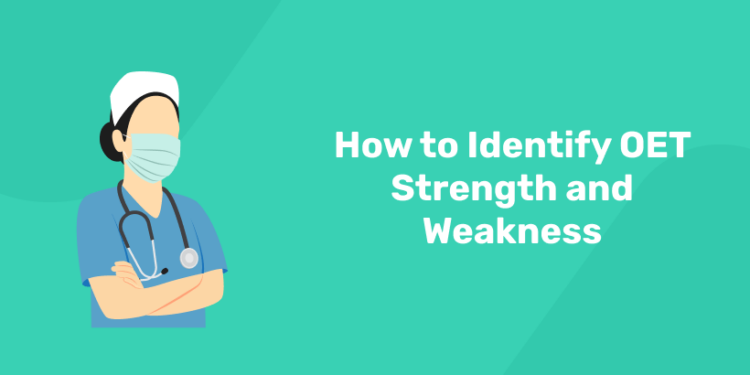Table of Contents
It is always good to take a sample test before taking the real OET.
But, taking a sample test is a serious task. You can get maximum benefit if you take a few necessary steps.
Let us first focus on why it is important to take a sample test.
Before you take a sample test in OET, you need to ask yourself why you would like to take the test. How is it going to be beneficial for you? What exactly is the goal? Do you just want to get familiar with the test or do you want to practice OET?
Certainly, if you are new to the Occupational English Test, taking an official sample test will be very much helpful. You can get a complete sense of questions. You will come to know whether English used in the test matches your standard of English or not.
But, if you are already aware of the OET, then taking a sample test can help you progress towards the required level needed to crack this test. You can assess your skills. And take the necessary actions.
Look at the OET structure
The first step shall be knowing more about the OET exam structure. Carefully read through the instructions. You will find a brief explanation in each section. Pay attention to the time given for each section. Learn more about how you need to mark your answers on the question booklet, etc.
It is practice time, so do not focus on time
If you are taking an OET sample for the first time, then it is recommended that you should not focus on time. Because, if you focus on time it will become difficult for you to understand the test completely.
But, of course, if you are already familiar with the test and have taken sample tests a couple of times, then it is important that you should focus on time. Follow the rules. Try to complete it well within the given time. Because, this will make you perfect at managing time.
Stay focused
Do not lose attention. It is true that you are on your own. But, you will have to stay focused. Most of the candidates do not perform well in OET because they do not manage to give 100% attention to the test.
Assessment
All the sample tests will have the key. So, you can compare your answer with the key. You can check your reading and listening answers. The key for the writing and the speaking sub-test may differ. As different candidates may respond in different ways. It is always better to get your answer (for writing sub-test) checked by experts.
Enroll short term courses in Entri -schedule your free Demo today !!
Determining Your Strengths
Generally, you will focus on your soft skills as strengths. There are other ways for interviewers and recruiters to gather hard skills, whether it’s through take-home assignments, a coding interview or examples of your past work. But with soft skills, you have to tell them the story.
Here are some examples of strengths. Which ones do you identify with? Can you think of more that have helped you shine in your career?
- Good communicator
- Team player
- Time management abilities
- Conflict resolution
- Ability to perform under pressure
Depending on the job, you might also choose to include hard skills in your strengths, citing your ability to code in a variety of languages, your knowledge of a foreign language or your experience as a copy editor as examples of why you would be a strong candidate for the job.
Determining Your Weaknesses
1: What is the primary purpose of a patient’s discharge summary?
Determining our strengths is generally easier; it’s fun to reflect on and celebrate our successes. But what about the areas where we struggle? Do you ever set aside the time to take a look in the mirror to see where you are letting others and yourself down, and how you can improve?
Employers expect candidates to have weaknesses, so you are better served by answering the question frankly. A candid answer will show your prospective employer your growth-mindset and will demonstrate a sense of self-awareness and honesty.
Here are some examples of common career weaknesses. Can you identify with any of them? If so, what have you done to improve these weaknesses?
- Wanting to control too many aspects of a situation
- Procrastination
- Inability to self-regulate, leading to burnout
- Disorganized
- Impatient
Again, you might choose to highlight some hard skills that are a weakness for you too, for example not being good with math, not being versed in a particular type of software or having trouble spelling — but only if it’s non-essential to the role.
Crack OET & Boost Your Healthcare Career!
OET Coaching by Entri App: Get expert guidance, practice with real exam scenarios, and achieve your target score to advance your healthcare career.
Join Now!Strategies for Avoiding Common Mistakes and Achieving Success on the OET
Now that we have identified the some of the most common reasons why candidates fail the OET, let’s summarise the strategy for avoiding these pitfalls and achieving success on the test.
-
Be prepared
First and foremost, it’s essential to fully prepare for the test. This means not only studying English language skills and medical terminology but also practising with authentic OET materials and familiarizing yourself with the test format and requirements. It’s also important to focus on your specific weaknesses and areas of need, rather than assuming that your existing skills are sufficient.
-
Pay attention to detail
In addition, paying close attention to instructions and questions, managing your time effectively, and focusing on accurate grammar and spelling can all help to avoid common errors made by OET candidates.
-
Get some help and support
Finally, it’s important to seek out support and guidance as needed. Many students are B2 level when starting to prepare for OET and they will need to study a significant number of hours to reach C1 level (which is equivalent to a passing score of 350.) This is a tough journey alone so it’s essential to get some guidance along the way to make sure you’re on the right track and you’re using your precious time effectively.
Enrolling in a short term courses can provide valuable feedback and advice from experienced OET tutors on how to improve your skills and strategies for success on the OET. They can help you identify your weaknesses and provide targeted practice materials to help you improve.
Enroll short term courses in Entri -schedule your free Demo today !!
Conclusion
Passing the OET is a critical step for international medical graduates looking to work and live in an English-speaking country. However, many candidates struggle to achieve the scores they need due to a lack of preparation, common errors, and difficulty with specific subtests. By fully preparing for the test, focusing on specific weaknesses and areas of need, and seeking out support and guidance as needed, you can avoid these pitfalls and achieve success on the OET. With the right preparation and strategies, passing the OET is within reach for any motivated candidate.










